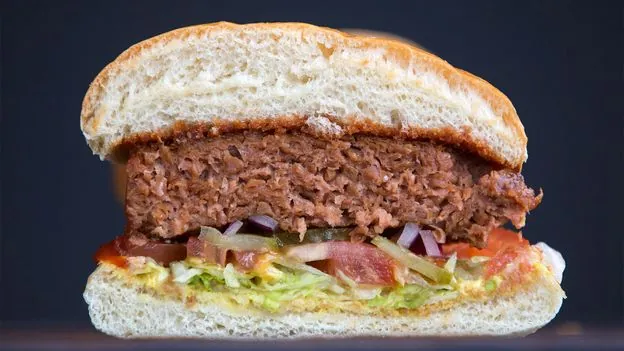
Unraveling the Growing Concern Over Ultra-Processed Plant-Based Foods: Are They Really as Bad as They Seem?
2024-10-12
Author: John Tan
Understanding Ultra-Processed Foods
The term 'ultra-processed' often evokes confusion since it lacks a clear, consistent definition. While it generally refers to foods with little nutritional value, a wide range of products falls into this category. For instance, everyday items like sandwich bread, frozen pizzas, and even condiments are considered ultra-processed due to the intensive manufacturing processes and additives involved. These foods are devised for convenience, taste, and shelf life, making them attractive to consumers.
However, the rise of ultra-processed plant-based alternatives has sparked significant concern, especially with alarming headlines warning against their health risks. Recent studies have indicated that a mere 10% increase in ultra-processed plant-based food consumption could elevate the risk of diet-related death by 12%. But is this risk as dire as it sounds?
The Distinction Between Processing Levels
Research conducted by nutritionists like Fernanda Rauber emphasizes the importance of categorizing food based on its processing level. Not all UPFs are harmful; some forms of food processing—like pasteurization—play essential roles in nutrition and safety. It’s predominantly the more intense forms of processing that pose health risks, particularly those involving additives that enhance palatability but offer minimal nutritional benefits.
Disturbingly, ultra-processed foods are often laden with excessive sugars, unhealthy fats, and salts. A UK study from 2023 has drawn correlations between increased UPF consumption and heightened cancer risks. It found that a 10% rise in UPFs was tied to a 2% increase in overall cancer rates and a staggering 19% increase in ovarian cancer rates specifically.
The Plant-Based Dilemma
Among those who adopt a plant-based diet, paradoxically, there's a tendency to consume more ultra-processed options—37% of caloric intake for vegetarians and 39.5% for vegans, compared to 33% for meat-eaters. While these consumers still incorporate unprocessed foods into their diets, the common reliance on substitutes and convenience items can lead to increased UPF consumption. Studies illustrate that new vegetarians and vegans often gravitate toward processed substitutes, indicating a transition phase that might not be nutritionally optimal.
Furthermore, emerging studies suggest that the correlation between ultra-processed foods and health issues may not apply uniformly across all food types. For instance, plant-based alternatives typically score better on nutrition assessments than their meat-based counterparts, providing healthier options for consumers.
Societal Reactions and Consumer Choices
The recognition of the negative health impacts of UPFs is prompting changes in public health policies worldwide. Brazil's government is even considering implementing taxes on ultra-processed foods, reflecting a broader effort to promote healthier eating habits. But industry insiders argue that processing plays a role in making plant-based diets more accessible and appealing.
As the market responds to consumer concerns, many manufacturers are adjusting their formulations to emphasize whole-food ingredients and simplify recipes. This trend signifies that the demand for healthier options is being acknowledged amidst the growing scrutiny surrounding ultra-processed foods.
Conclusion: Striking a Balance
Experts remind us that while it is wise to be cautious about ultra-processed foods, not all are detrimental. Consuming a balanced diet, rich in fruits, vegetables, nuts, and legumes is paramount, regardless of whether foods are processed or not. Incorporating a moderate amount of UPFs doesn’t spell disaster for your health. In the long run, it’s the overall dietary pattern—not the occasional indulgence—that matters most.
So, as you navigate your health journey, remember: striking a balance in your diet can lead to a happier, healthier life, without the need to completely eliminate beloved convenience foods.



 Brasil (PT)
Brasil (PT)
 Canada (EN)
Canada (EN)
 Chile (ES)
Chile (ES)
 España (ES)
España (ES)
 France (FR)
France (FR)
 Hong Kong (EN)
Hong Kong (EN)
 Italia (IT)
Italia (IT)
 日本 (JA)
日本 (JA)
 Magyarország (HU)
Magyarország (HU)
 Norge (NO)
Norge (NO)
 Polska (PL)
Polska (PL)
 Schweiz (DE)
Schweiz (DE)
 Singapore (EN)
Singapore (EN)
 Sverige (SV)
Sverige (SV)
 Suomi (FI)
Suomi (FI)
 Türkiye (TR)
Türkiye (TR)